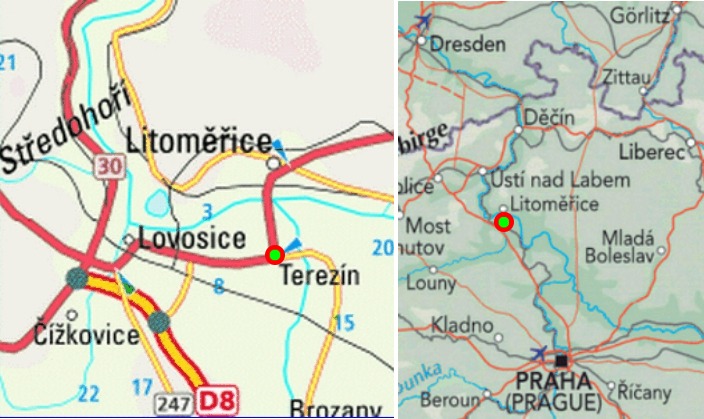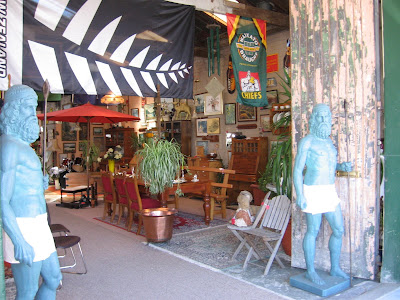
Like traffic jams on the southern motorway, roller bladers on Tamaki Drive, and pot parties in the Domain, the Red Cross Book Sale is an Auckland institution. Every year, on a weekend in the depths of mid-winter, the Delightful Lady Lounge under the grandstand at the Alexandra Racecourse is filled by book dealers pushing wheelbarrows, undergraduate arts students with milo stain beards and drycleaned duffel coats, first editions collectors from the Eastern suburbs in sky-blue suits, and old men with yellow ticket stubs looking for somewhere warm to linger before the betting and drinking begins.
The bookdealers queue at the door on Friday evening and then again on Saturday morning, when volunteers replenish the Lounge's makeshift shelves from the enormous stock donated by Aucklanders over the last twelve months. When the doors are flung open the grim wheelbarrow bearers push forward, aim elbows at each other, and exchange unpleasantries, without taking their eyes off the stack at the back of the Lounge labelled RARE AND COLLECTABLE. This is what I've heard, anyway, from somebody who is foolish enough to turn up on Friday and Saturday.
I'm not a queuer. I always wait until 3.30 on Sunday afternoon - half an hour before the advertised end of the sale - before stepping into the ruins of the Delightful Lady Lounge, and joining the small bands of exhausted gleaners picking at piles of rubble labelled TWO DOLLARS A BAG - EVERYTHING MUST GO and HEAVY INTELLECTUAL STUFF - FREE TO A GOOD HOME!
By about half past four last Sunday an owl-faced volunteer had finally coaxed the last of the gleaners out of the lounge. Skyler and I were dragging eleven bags - we got them at a dollar a pop, on the condition we leave the premises with them - towards the lifts, when I spotted a large black box abandoned beside the entrance to the disabled toilets. A quick examination revealed scores of old issues of the classic Kiwi literary journals
Landfall and
Islands, topped up with some copies of
Broadsheet, the pioneering feminist magazine, a volume of papers from the Aotearoa Women's Studies Conference 1980, and half a dozen newsletters from the New Zealand branch of the International and Intergalactic Dr Who Fan Club.

When we got home, I trawled through the
Landfalls, checking dates and contents pages. I noticed the same name scrawled on the inside cover of many of the copies:
Alvin Smith. After further research, I discovered that Smith's signature coincided with the appearance of a poem by Kendrick Smithyman in
Landfall. A man by taste, obviously.
There were a few fine scores in the Lounge itself, including a couple of rare EP Thompsons from the first half of the 1980s, when the great man was consumed with anti-nuclear activism.

I checked the inside cover, wondering if they were ex-libris, and saw the same name in both.
Alvin Smith. Near the Thompsons a couple of out of print classics from the revolutionary '70s lurked:

Dave Bedggood's
Rich and Poor in New Zealand was a pioneering Marxist study of Kiwi society and history which drove Keith Sinclair to apoplexy in the academic press. Nearly thirty years on, it is still mined for lessons in several of this country's sociology departments. (Bryan Roper's recent volume
Prosperity for All? can be considered a sort of sequel.) I checked the inside cover of Dave's opus, wondering whether I'd recognise the name of one of the big fish who patrol the small, rather stagnant pool called Marxist politics in Auckland.
Alvin Smith, 1981.
One of my pet post-PhD projects is a comparative study of two Kiwi dystopias from the ’70s - CK Stead’s slender
Smith’s Dream, which spawned the movie
Sleeping Dogs and is today regarded as a national treasure, and Craig Harrison’s
Broken October, a book which is largely forgotten.
Smith's Dream is bleak, as dystopias tend to be, but it is also abstract, ahistorical, and somewhat mysterious - more like Kafka's
The Castle than
Nineteen Eighty-Four. The dictator’s politics are hardly fleshed out; nor are those of the resistance that Stead's anti-hero unhappily joins. Stead is interested in telling a parable about the imperfection of humanity and the near-inevitability of the abuse of political power, not in comprehending the specifics of Kiwi society.
Broken October, on the other hand, comes with an extended pre-history and a densely sociological present; it is a biggish novel stuffed with faux-newspaper reports and sardonic analyses of the policies of a US-backed military dictator and his trade unionist and Maori nationalist opponents. Stead's book could have been set anywhere, and written anytime in the twentieth century; Harrison's book could only have been written in New Zealand in the 1970s, a time when a strike wave, paranoia about communism, rising racial tension, and a nosediving economy were playing havoc with cosy myths about 'God's own country'.
Warren Montag has argued that, in treating
Heart of Darkness as an allegory for the human condition - that is, an abstract, ahistorical novel - literary canon-builders effectively diverted attention from Conrad’s expose of the horrors of colonialism in nineteenth century Africa. I think that some of the same tendency is at work when literary critics and historians choose
Smith’s Dream over
Broken October. Harrison is asking us to examine truths about Kiwi society which are concrete and uncomfortable. Stead lets us cop out by sermonising about a universal will to dictatorship. ('Nothing to do with the Maoris, mate, see.')
I'd never actually owned a copy of the long out of print
Broken October, and the copy I located in the Delightful Lady Lounge looked brand new. Perhaps a bookstore had tipped it off a dusty storage shelf and into a charity crate for Red Cross to pick up? I opened the book, but somebody had been there before me.
Alvin Smith, 1978.
I wasn't worried, then. There's nothing inherently strange about good taste in books, even if it's sparingly distributed. Why shouldn't a sentient creature share my enthusiasm for EP Thompson
and Kendrick Smithyman, oddball poetics and loony left politics?
I am a little worried now, though. A couple of days ago Michael Steven dropped around with a copy of a large book of short prose pieces by American poets, assuring me that 'it's just the sort of thing a person like you will like'. Last night I kicked the cat off the sofa, poured myself a coffee, and sat down, determined to read for at least twenty pages, or one side of DD Smash's
Cool Bananas. I opened the cover of the gift, and saw two names:
Michael Stevens and - faintly, but unmistakably -
Alvin Smith, April 28, 1978.
Who is this man? If you can find out, I'll shout you a burger at Whare Kai.

 These pictures were taken on a cellphone in the dim interior regions of K Rd's Wine Cellar last night, during a Bill Direen gig that lasted two hours and featured scores of songs in English, French, and German.
These pictures were taken on a cellphone in the dim interior regions of K Rd's Wine Cellar last night, during a Bill Direen gig that lasted two hours and featured scores of songs in English, French, and German.  An honourable mention to the artist responsible for the Duchampian readymade in the Wine Cellar toilets, and to Muzzlehatch, who accompanied Bill on two songs with such fervour that he succumbed to sleep soon afterwards:
An honourable mention to the artist responsible for the Duchampian readymade in the Wine Cellar toilets, and to Muzzlehatch, who accompanied Bill on two songs with such fervour that he succumbed to sleep soon afterwards:









 The above photos were taken with my mobile last week. The cafe is called Whare Kai and is located on the round about in Avondale. The chef is only there until about 2pm each day. There isn't much for vegetarians but the owners are friendly and can make a pretty good vege omelette and nachos too.
The above photos were taken with my mobile last week. The cafe is called Whare Kai and is located on the round about in Avondale. The chef is only there until about 2pm each day. There isn't much for vegetarians but the owners are friendly and can make a pretty good vege omelette and nachos too.















